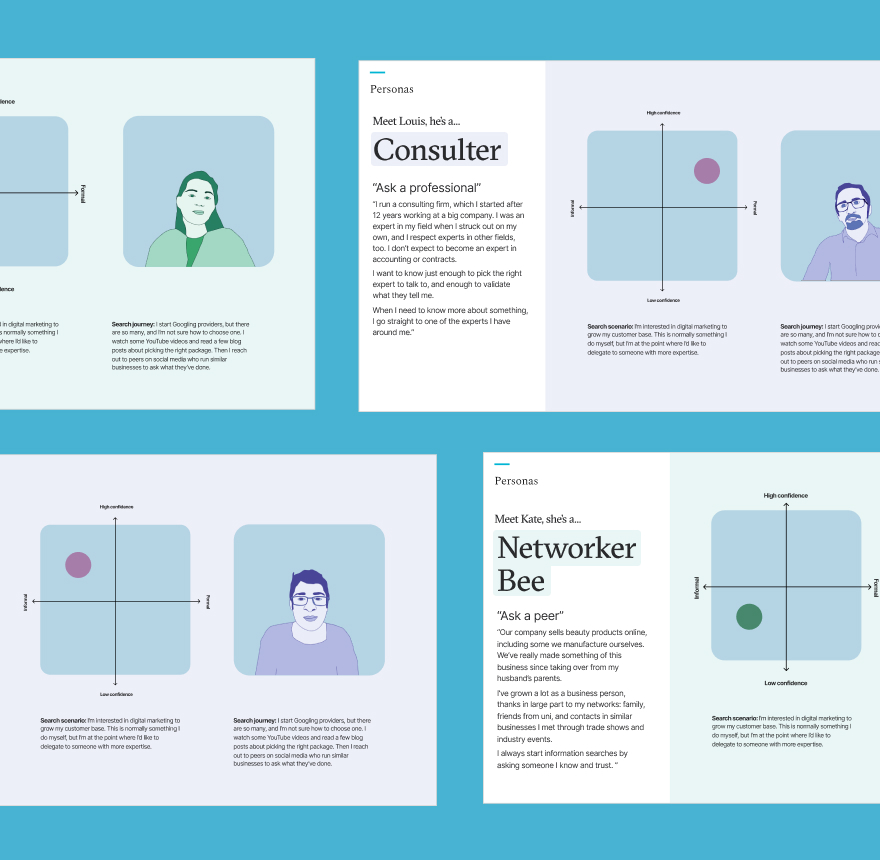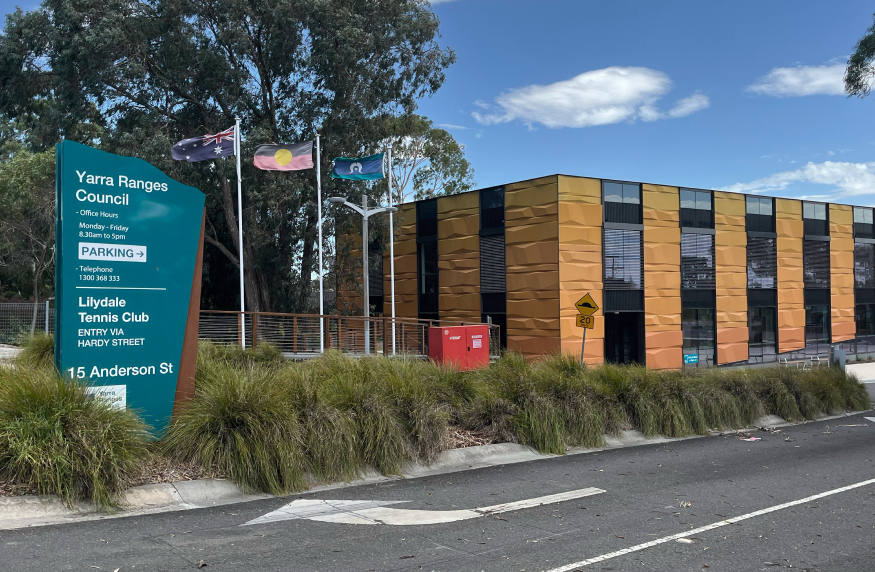Department of Home Affairs
Creating a world-first framework for assessing refugee identities
The Australian Department of Home Affairs asked Paper Giant to conduct ethnographic research in Myanmar so they could better understand the experiences and life stories of refugees.
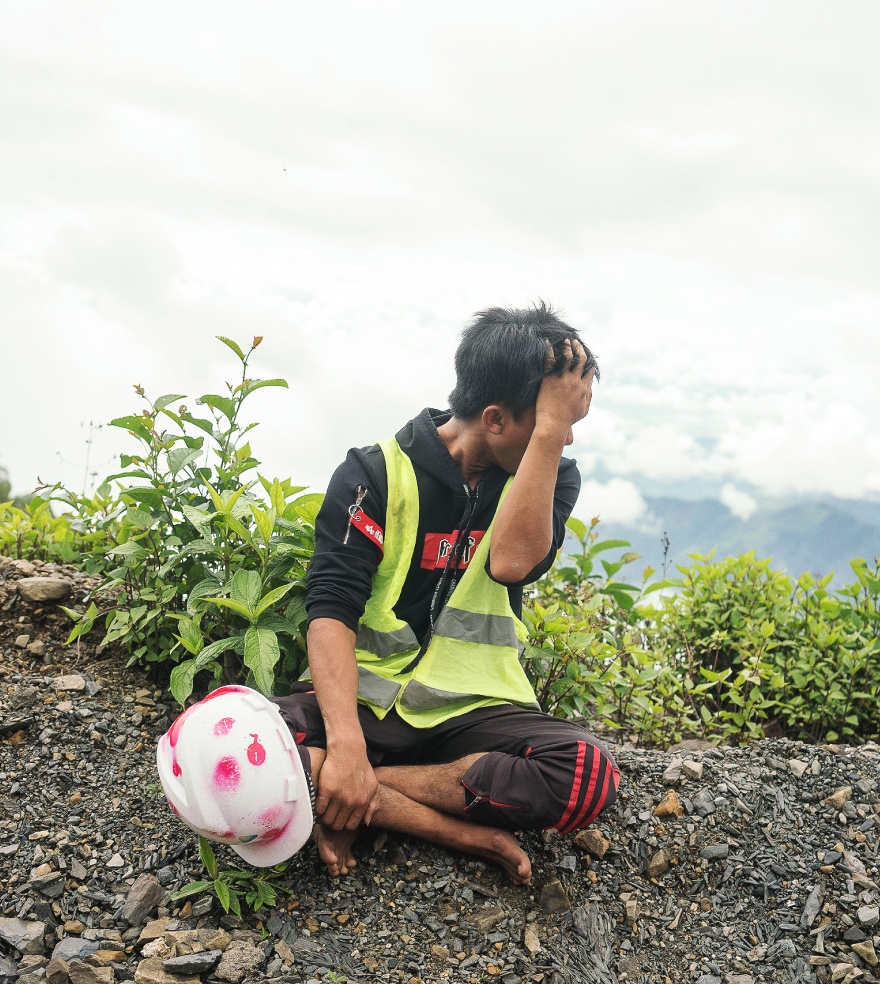
Outcomes
-
A world-first methodology and framework for assessing complex identities
-
The first ever in-depth social research in Chin State, Myanmar
-
Decision making tools for citizenship case workers in Federal government
Services
- Research and insights
- International research
- Social research
Sectors
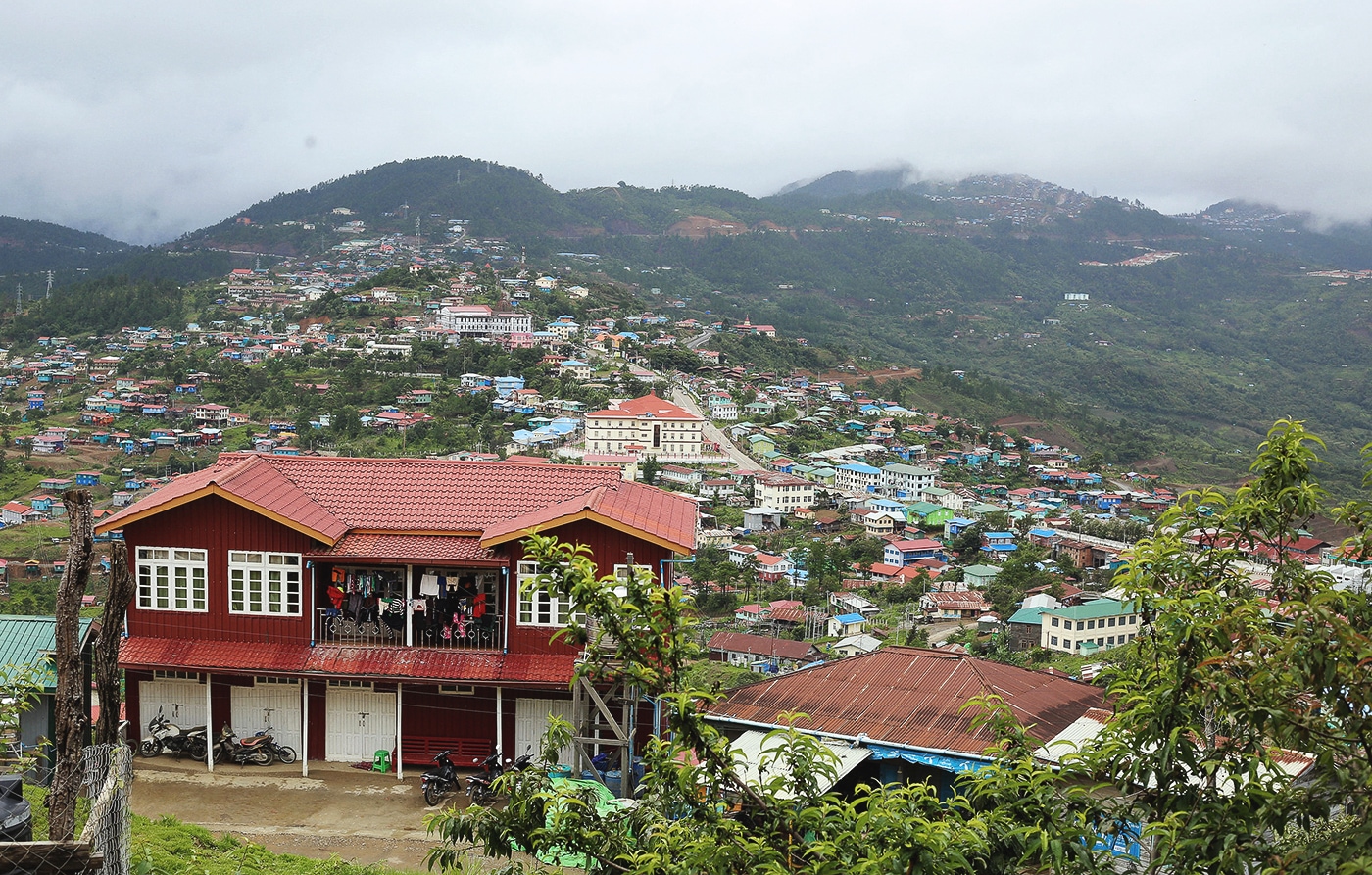
Refugees and Identity
In 2011, Myanmar transitioned away from military control to a democratically elected government for the first time since 1962. For much of that period, many of Myanmar’s minority ethnic groups experienced varying degrees of oppression and violence by the controlling military.
Over the last 20 years, Australia has granted protection visas to many thousands of refugees from Myanmar. These people have found safety here and made new lives for themselves and their families.
Now, many of them are eligible to apply for Australian citizenship.
Paper Giant were asked to design a project that helped the government verify identities of refugees when they no longer have reliable access to identity documents, and cultural differences around naming and marriage practices meant that the very pillars of ‘identity’ needed to be better understood.
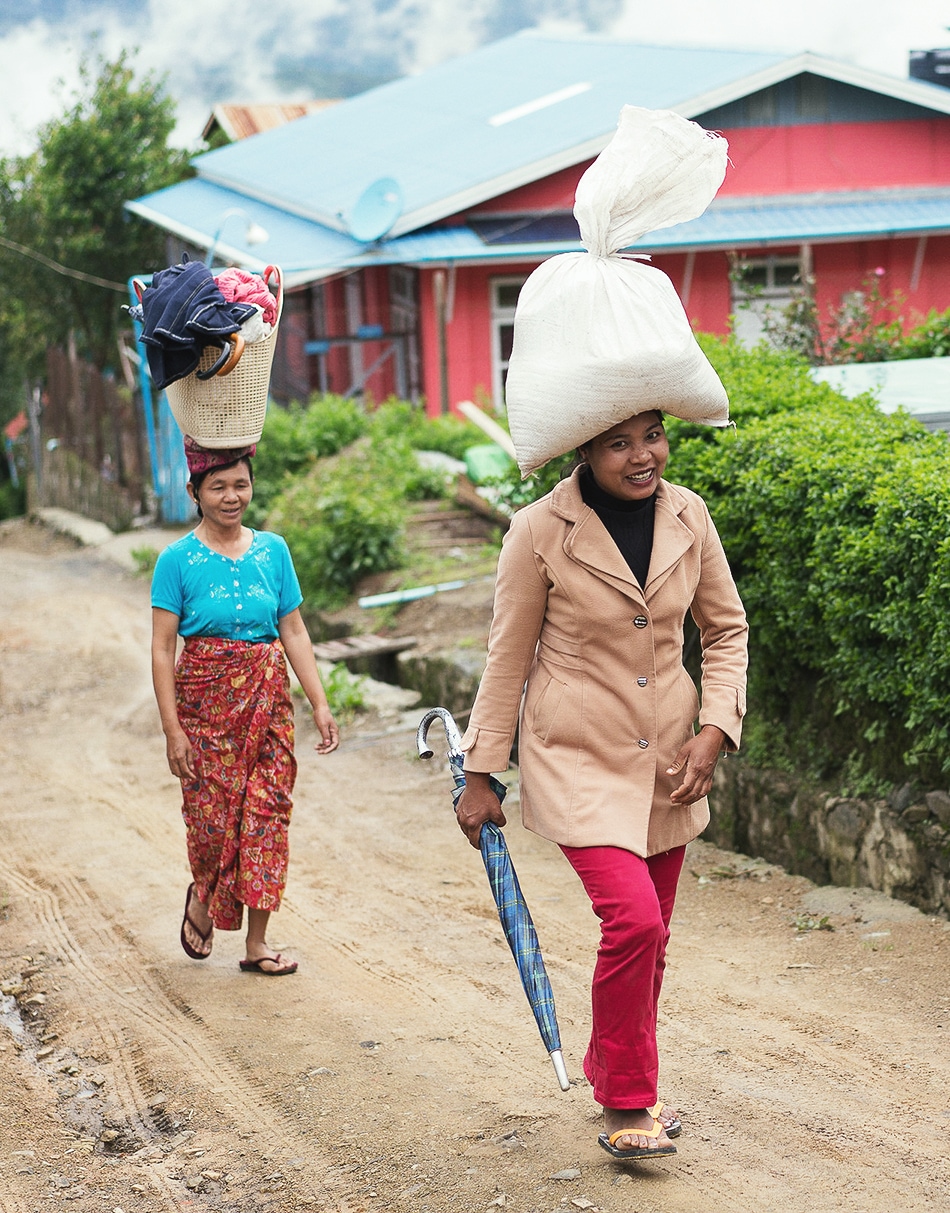
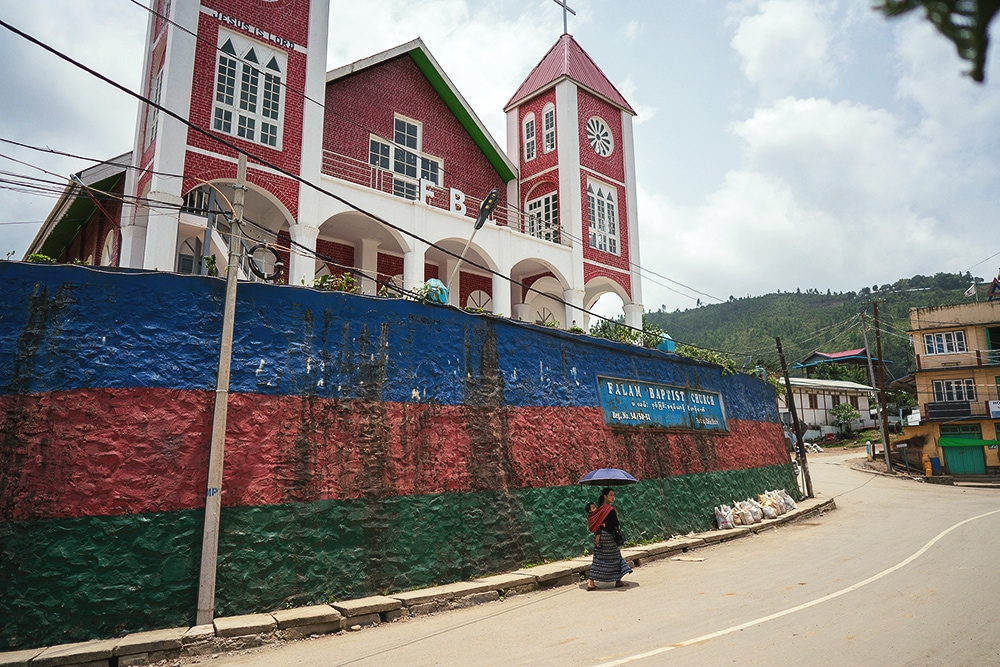
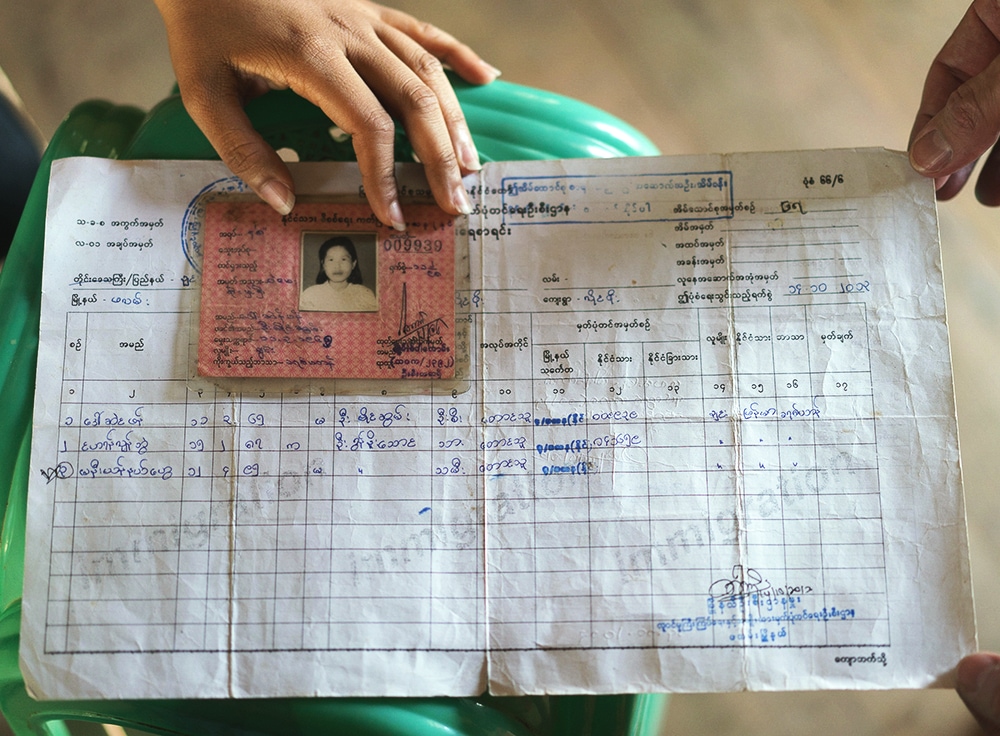
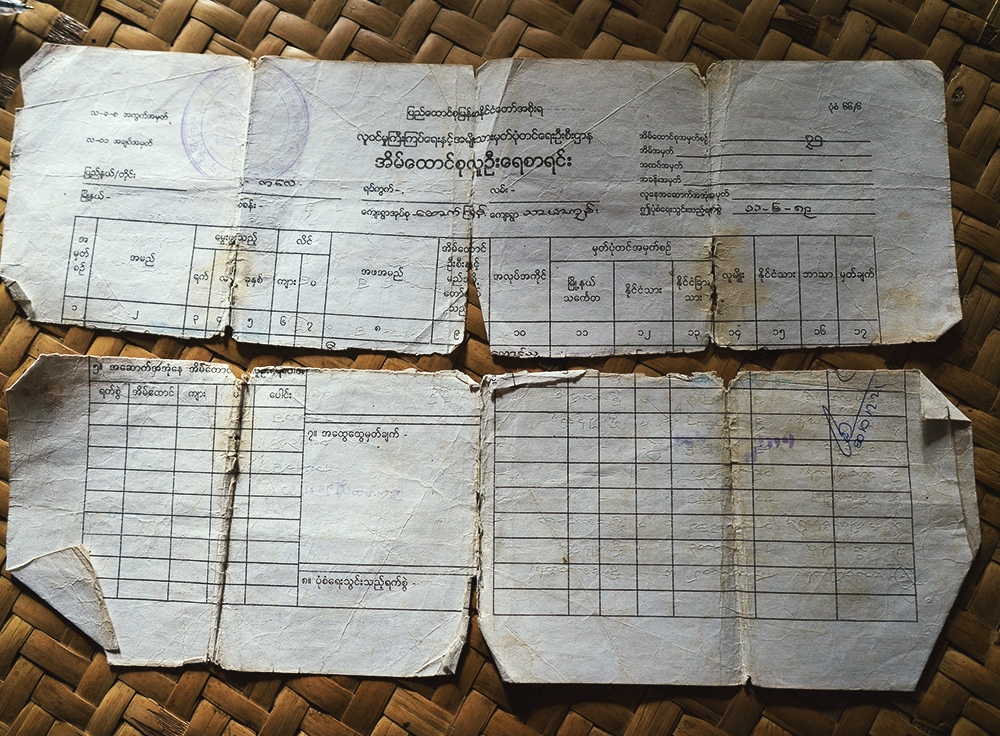
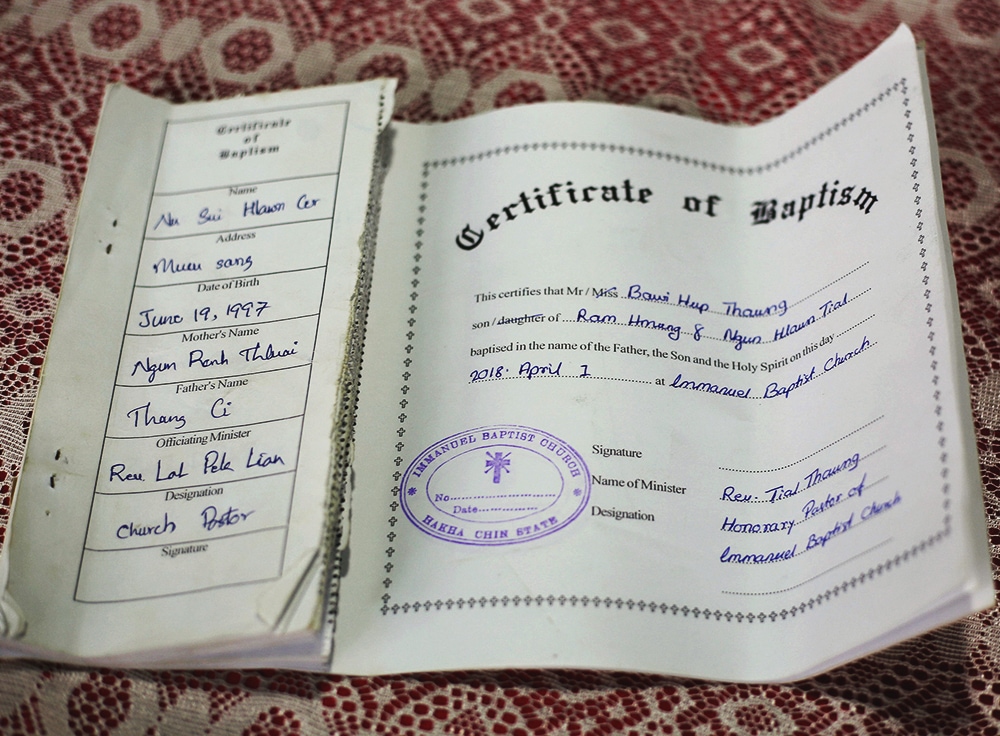
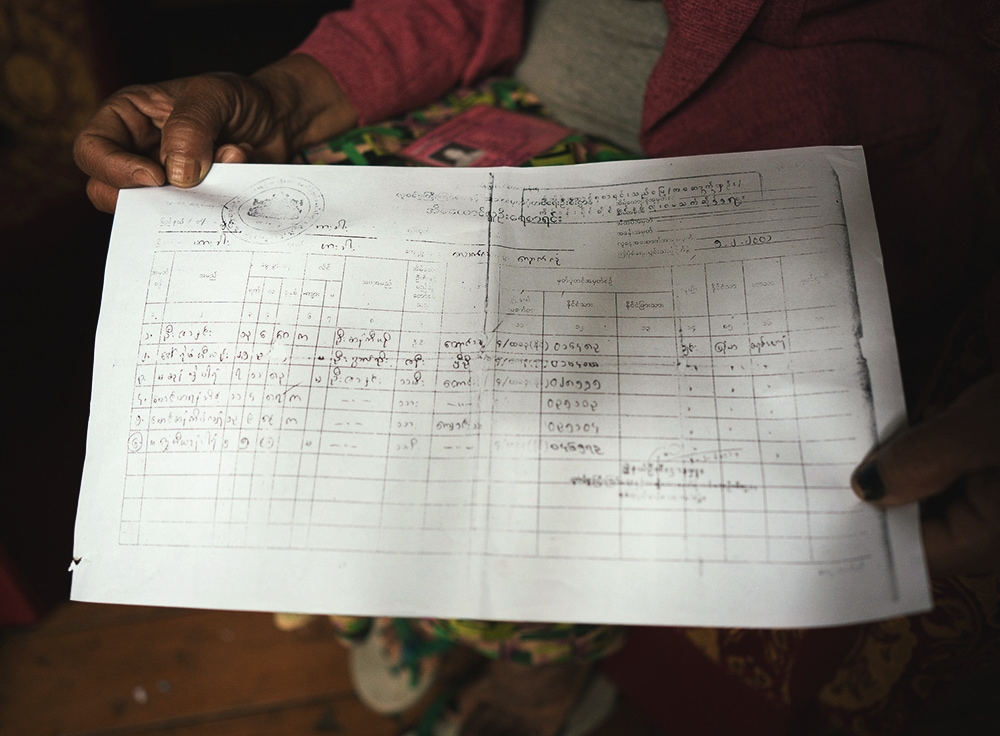
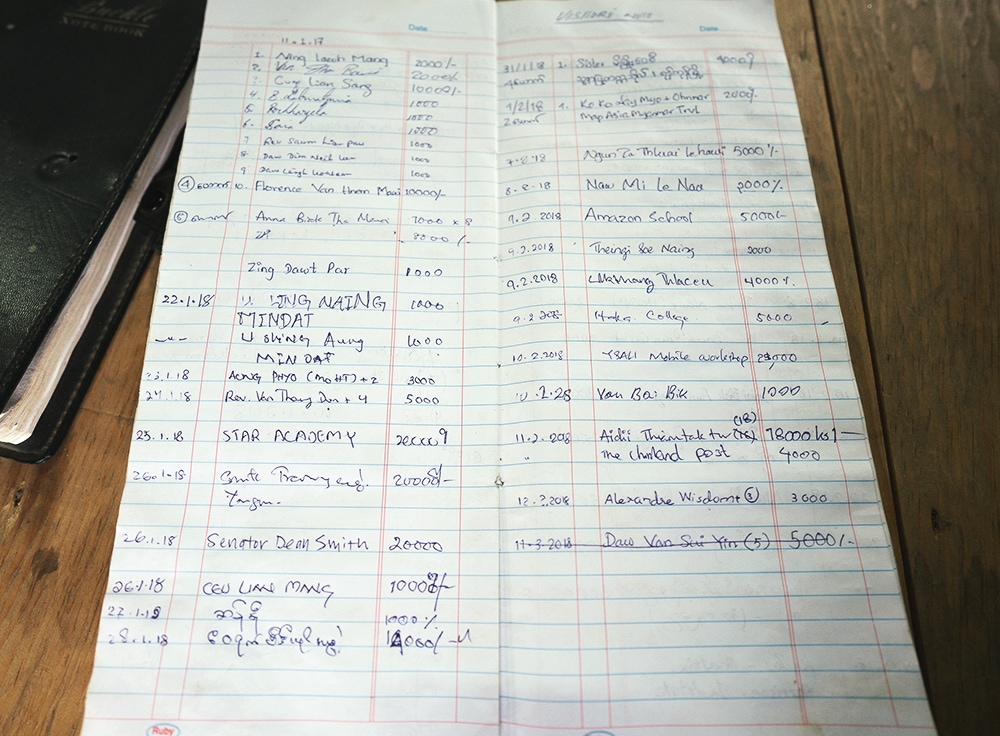
A collection of some of the different forms of identification held by the Myanmar people
Conducting International Research
Through the middle of 2018, Paper Giant led a team of 12 researchers, translators and fixers on a two-month research project through Chin State – a region of Myanmar that, until 2016, was completely closed to international visitors.
Travelling through the monsoon season for two months, the team interviewed over 60 individuals about their lives, their identity documents, and their towns and villages.
We structured our fieldwork in three parallel streams, with one team scouting ahead to future destinations, one team interviewing individuals and families, and one team collecting place-based information.
Paper Giant managed all aspects of the project design and fieldwork, including recruiting the local support crew, in what is a world-first project in the refugee and humanitarian sector globally.
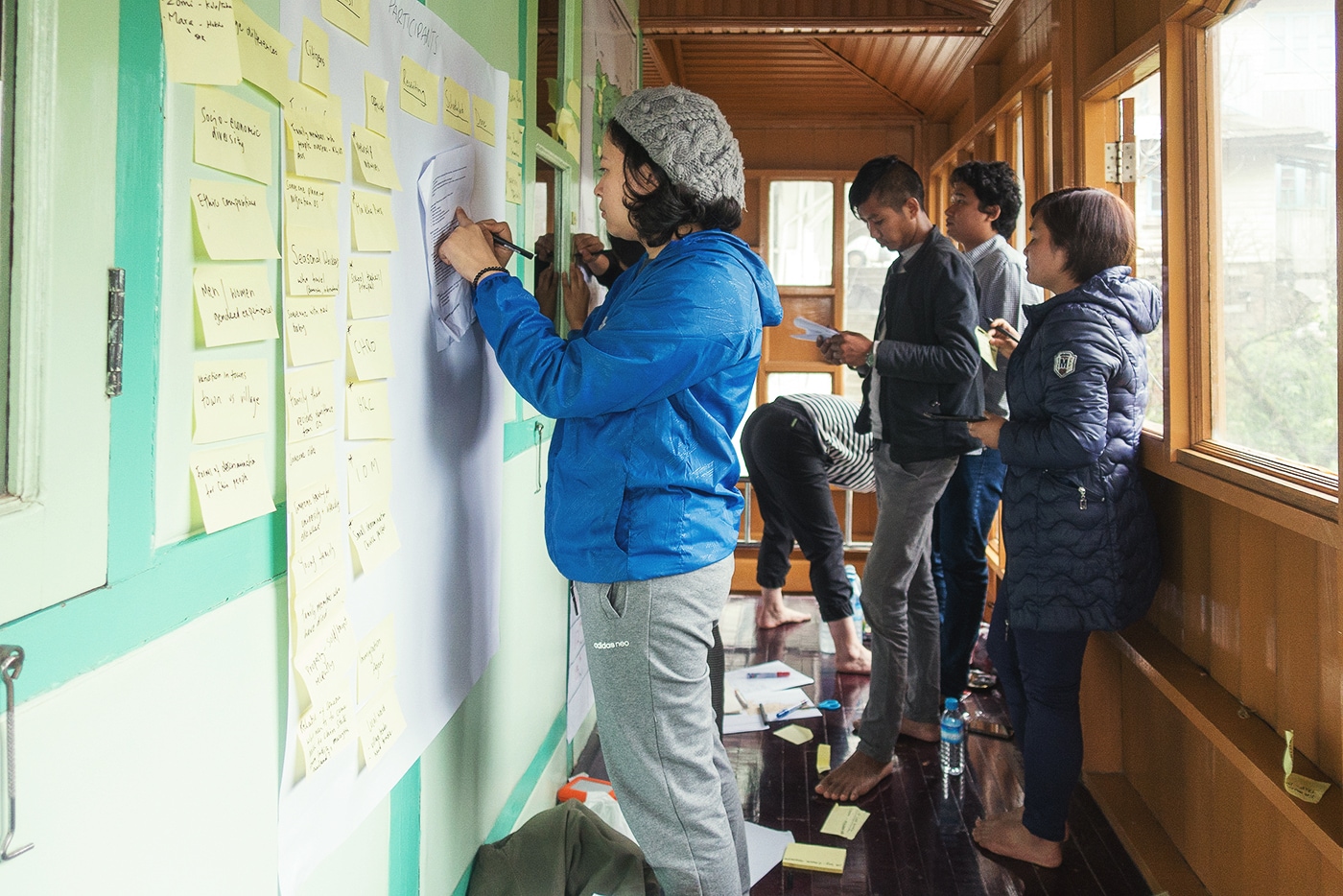
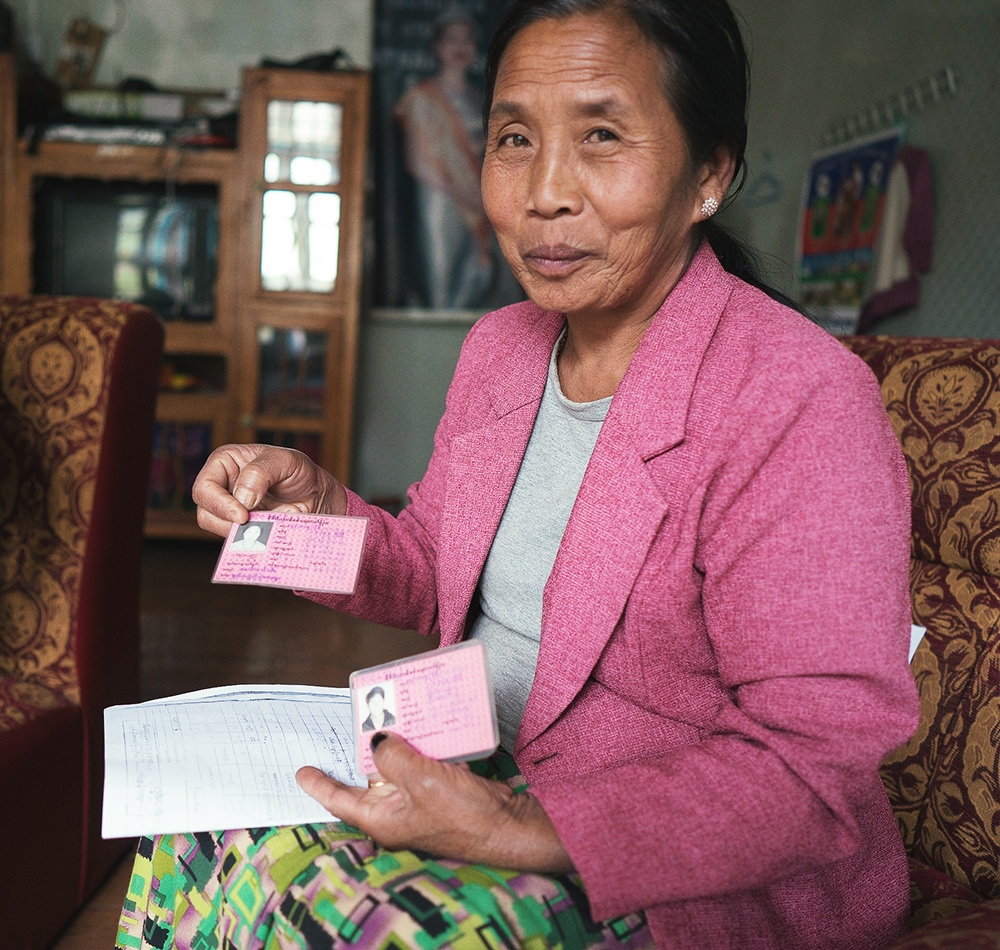
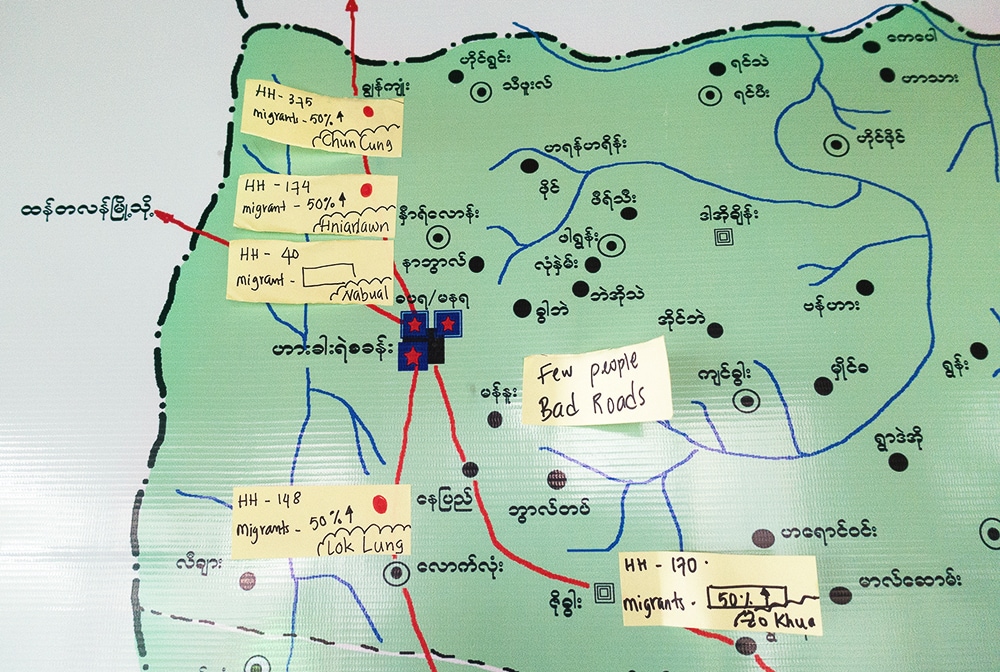
Creating decision making tools
With data collected during the fieldwork, we created:
-
A comprehensive Identity Document Field Guide, detailing the most common identity documents in Myanmar, their prerequisites, what they enable, and how they are obtained.
-
A Migration Journey Map, detailing the experiences and stories of refugees who moved from Myanmar to countries like Australia.
-
A Life Story Guide, detailing the typical experiences, across key life stages, of a diverse range of individuals who live in rural Myanmar.
-
Detailed Place Guides, including the first ever detailed maps of schools, hospitals and other support infrastructure in the region.
Together, these tools form a world-first framework for refugee and humanitarian workers across the globe to work with complex identity cases, where identity documents cannot be relied upon.
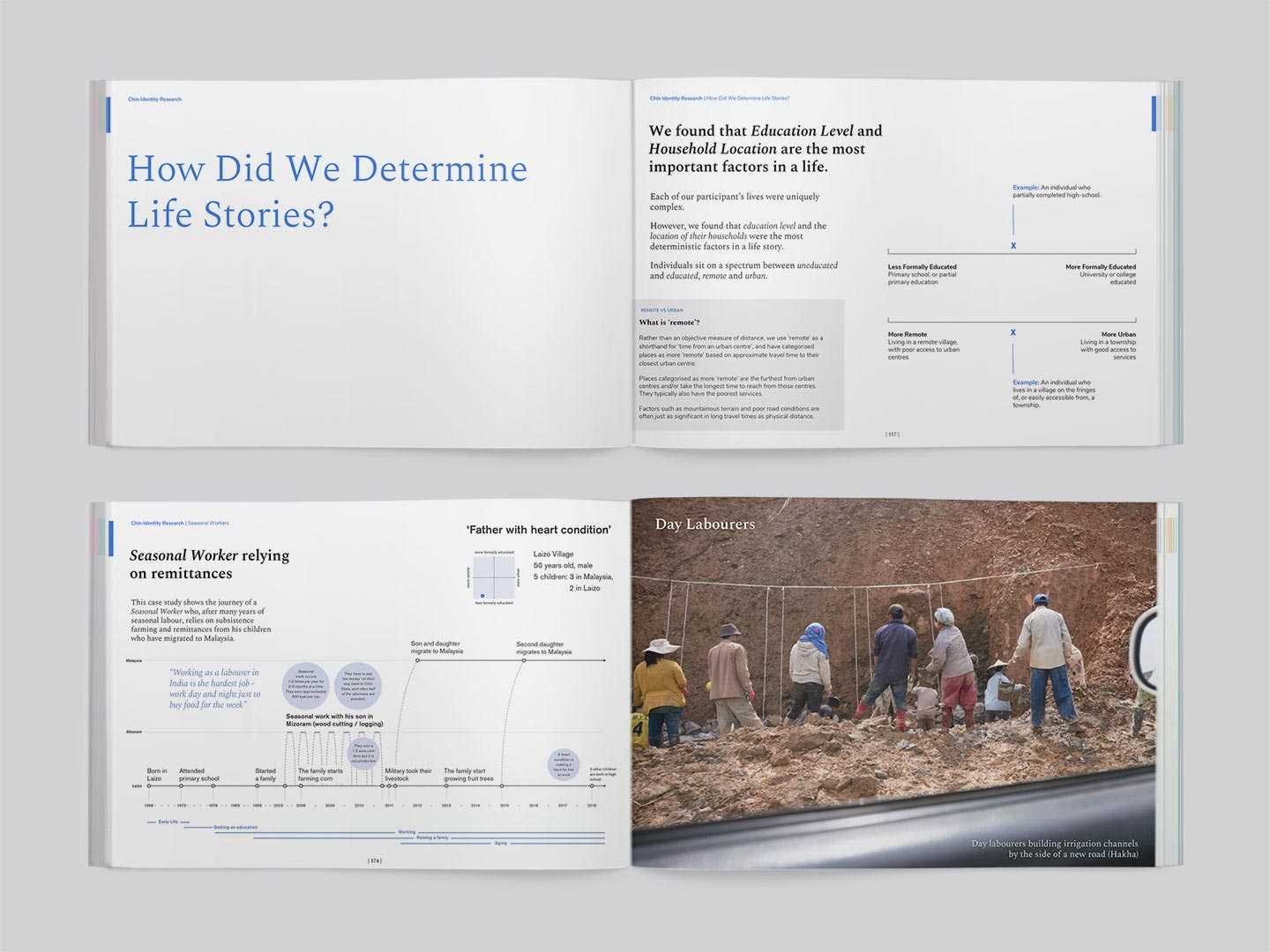
A spread from the final report detailed the life stories captured from the research.
